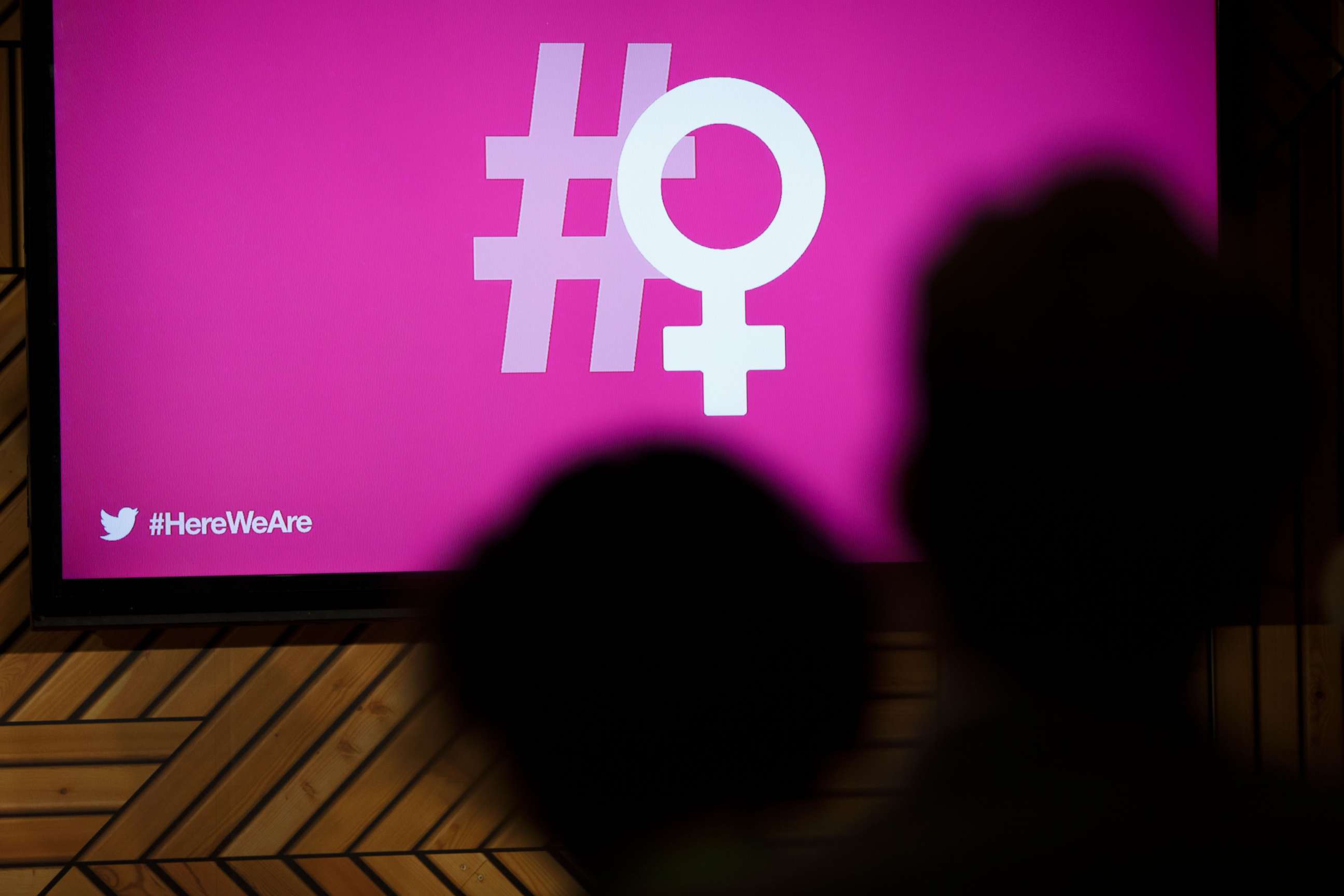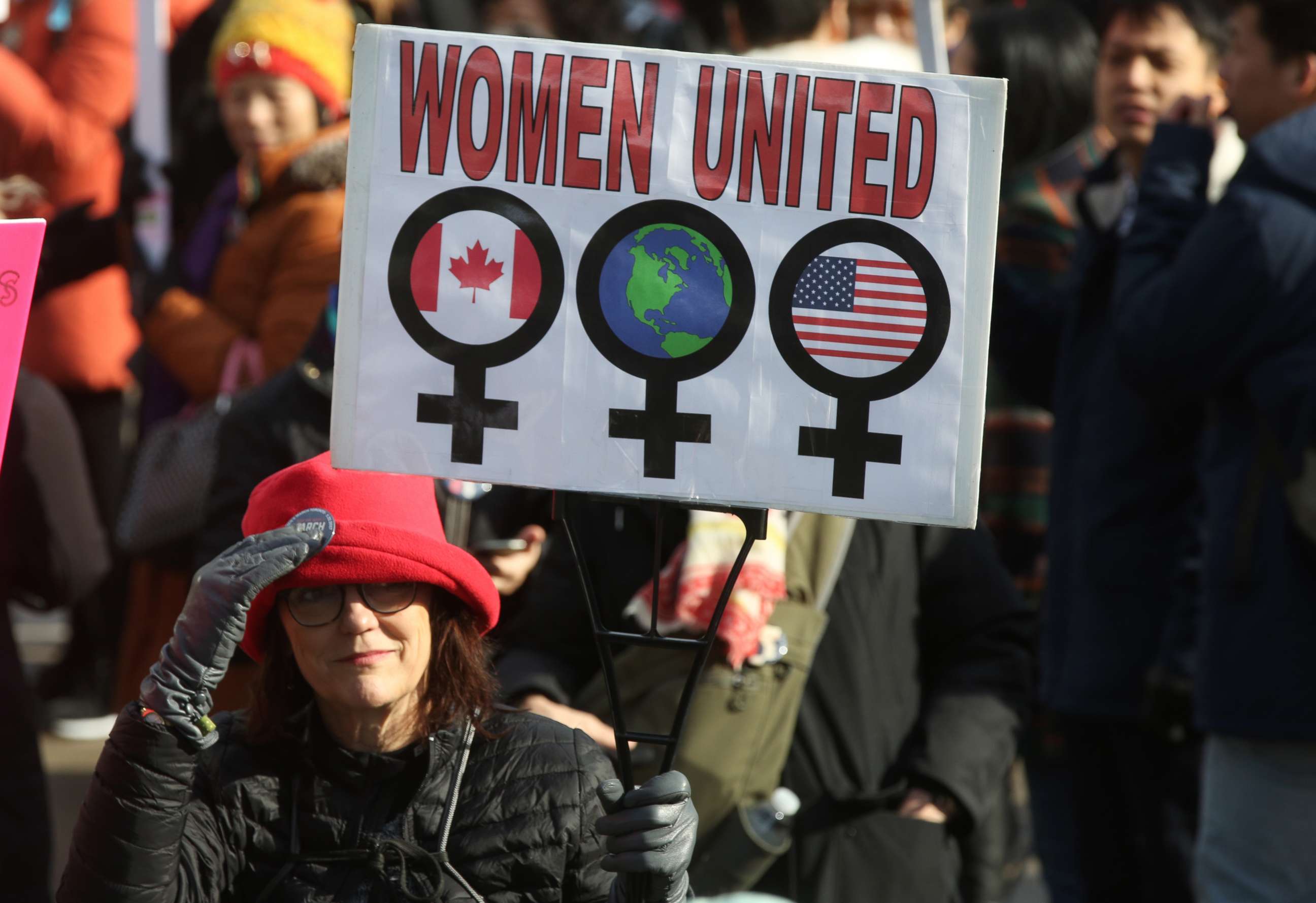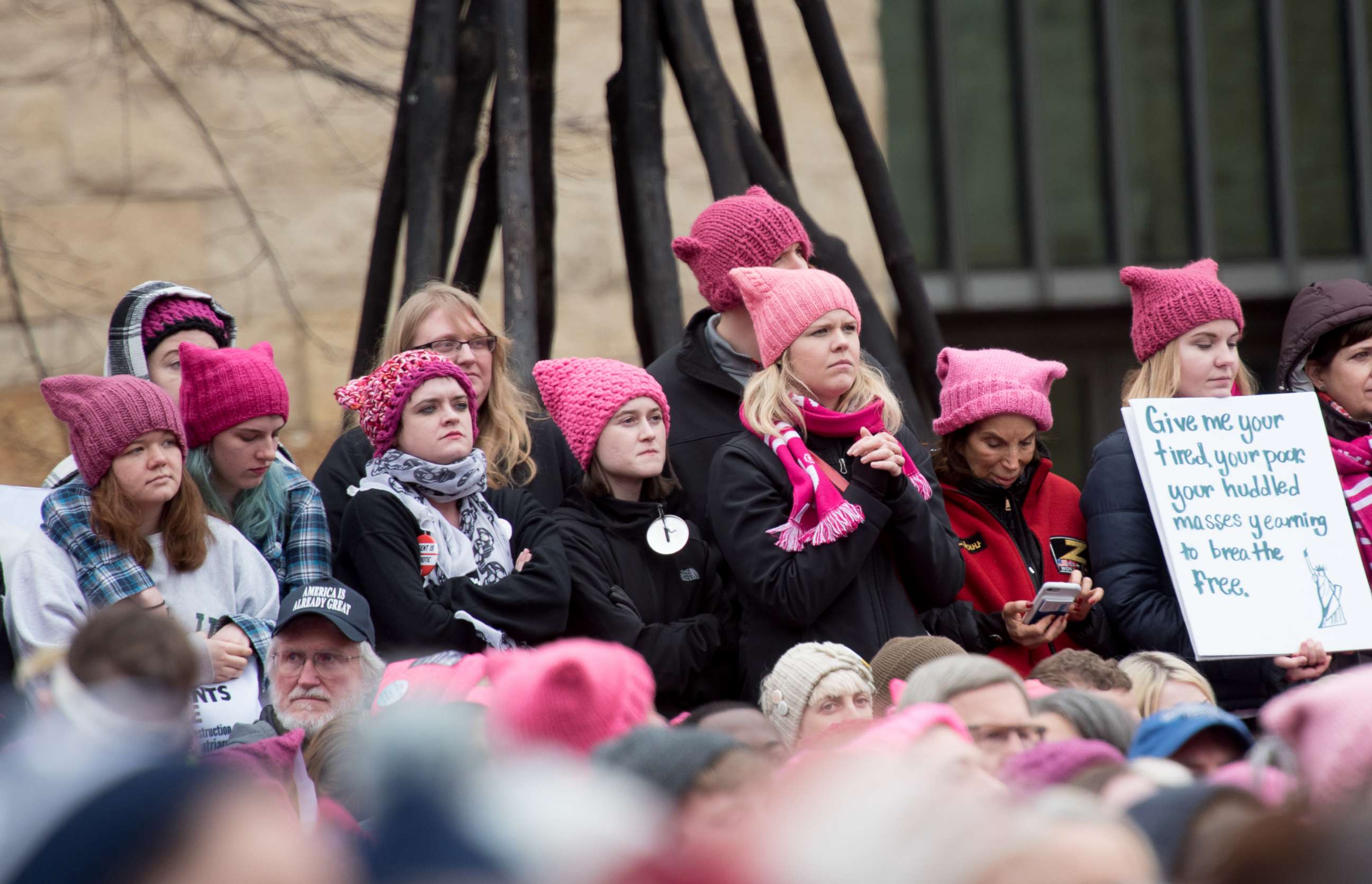6 in 10 have hope for lasting change on sexual harassment (POLL)
A new ABC News/Washington Post poll.
— -- There’s hope for a good outcome from the recent controversies over sexual harassment: Sixty-two percent of Americans in a new ABC News/Washington Post poll -- men and women alike -- think the debate will create lasting change in the way U.S. society deals with the issue.
That result is accompanied by a rise in the perception that the sexual harassment of women in the workplace as a problem: Eighty-three percent now say so, including 72 percent who call it a "serious" problem. Both are up by 8 percentage points since allegations of sexual misconduct by film mogul Harvey Weinstein lit the fuse in October.
See PDF for full results, charts and tables.
About six in 10 also say attention on the issue either has been "about right" (34 percent) or "has not gone far enough" (29 percent). That leaves 32 percent who say "it's gone too far" -- disproportionately, Republicans and strong conservatives.
Groups
The poll, produced for ABC News by Langer Research Associates, finds women slightly more apt than men to see sexual harassment in the workplace as a problem, 86 vs. 81 percent, and more likely to call it a serious problem, 77 vs. 67 percent. Still, more of the gain since fall has occurred among men -- they’re 10 points more apt now to call the issue a problem, twice the rate of growth among women.

College-educated women are a bit more likely than those without a degree to call workplace sexual harassment a problem, 90 percent vs. 83 percent. There's no such education gap among men.
Partisanship and ideology are related to these perceptions. Ninety-two percent of Democrats see sexual harassment in the workplace as a problem, vs. 83 percent of independents and 74 percent of Republicans. But, as with men, the biggest increase occurred among Republicans, with 58 percent saying it was a problem in October vs. 74 percent now, a 16-point rise. It's up 11 points among "strong" conservatives, to 65 percent, though that falls short of statistical significance.

That said, Republicans and conservatives also are most likely to think attention on the issue has gone too far, at 49 percent and 44 percent, respectively, vs. 23 percent of Democrats and 15 percent of liberals. Independents and moderates are between the other two, at 29 percent and 32 percent.
Thinking that recent attention hasn't gone far enough peaks among liberals (43 percent), Democrats (38 percent), those in the lower end of the income range (37 percent) and nonwhites (37 percent). Women are a bit more likely than men to say so, at 32 percent vs. 26 percent. That view is highest among women under 50, at 38 percent, and lowest among men 50 and older, at 21 percent. The latter are most likely to say it's gone too far, at 41 percent.

Though most men and women believe the debate will change the way that society deals with the sexual harassment of women, this view varies by age. Those 50 and older are more likely than younger adults to say it will, peaking at 71 percent among older men. It's lowest among younger men, at 55 percent. Younger and older women alike fall between, at 59 and 65 percent, respectively.
Methodology
This ABC News/Washington Post poll was conducted by landline and cellular telephone Jan. 15-18, 2018, in English and Spanish, among a random national sample of 1,005 adults. Results have a margin of sampling error of 3.5 points, including the design effect. Partisan divisions are 31-23-40 percent, Democrats-Republicans-independents.
The survey was produced for ABC News by Langer Research Associates of New York, N.Y., with sampling, data collection and tabulation by Abt Associates of Cambridge, Massachusetts. See details on the survey’s methodology here.




